






The Future of Educational Leadership
Although the future of corporate life is a popular topic, despite being crucial for global wellbeing and longevity, education is often overlooked.
To answer questions about the future of educational leadership, and propose an agenda for change and development, authors Valerie Hannon and Anthony Mackay have created their report The future of educational leadership: Five signposts.
As thought leaders, co-founders of the Global Education Leaders Partnership (GELP), and advisors to countless educational research centers and councils, they offer fundamental perspectives on educational leadership.
As the fourth paper in a series from the Centre for Strategic Education, Hannon and Mackay’s report highlights the necessity for a new form of educational leadership to take over in a world impacted by COVID-19 and other global disruptions. With so many significant societal changes occurring — from economic shifts and climate emergencies to technological innovations — our schools, educational leaders, and students are trying to find their place in an ever-evolving environment.
In this post, we’ll introduce the five signposts outlined by the authors, highlight key quotes and learnings from their report, and provide an exclusive invite so you can learn more about this timely topic.
The five signposts

Lead the creation of a new education narrative
The first signpost is the education narrative. Historically, leaders have been responsible for creating narratives that define societies, values, and communities. When it comes to educational institutions and schools, this is no different.
School leaders have often created narratives around their individual institutions — usually surrounding history, aspiration, and excellence. For example, when you think of Harvard Law School, you most likely picture an exclusive Ivy League institution built on a legacy of monumental success and iconic alumni.
While this “old narrative” around success has been pervasive to the present day, the authors propose a new narrative. Rather than focusing on individual schools, this new education narrative explores the purpose of collective learning as expansive, informed, and profoundly moral.
The concept of “thriving” doesn’t just refer to a student landing a high-earning job once they’ve graduated, but how the values of sustainability, solidarity, and social responsibility have been incorporated into the collective educational system’s ethos.
As Hannon and Mackay explain,
“The construction of public narrative (the story we tell ourselves about ourselves) is fundamental to any possibility of change in education; the change that is needed if today’s learners are to thrive in a transforming world.”
Lead within ecosystems
Hannon and Mackay open their signpost two discussion by stating, “The traditional silos of schooling are no longer adequate to the challenge of providing the range, diversity, and personalisation of learning opportunities that young people now need if we are all to thrive.”
Rather than simply dissecting the institution of the school on its own, educational leaders need to understand and consider other learning institutions such as businesses, creative and cultural organizations, and other learning ecosystems to build a society that prioritizes lifelong learning. When this happens, leaders can tap into and empower a greater workforce and encourage a much freer flow of ideas and perspectives.
Additionally, these ecosystems benefit learners by opening up countless educational possibilities. Instead of relying solely on schools for their learning opportunities, learners and students can discover other channels to gain experience and knowledge. That said, the authors emphasize the need for schools within these ecosystems — but only if they are reimagined. Continue reading their report here and join our upcoming event to find out exactly what this means.
Lead for equity
While equality and individual and collective wellbeing have long been goals of our educational systems, these can’t be achieved without addressing equity at a deep level. Numerous inequalities create hierarchies within our societal systems, from income and wealth disparities to differences in race, gender, and sexuality.
As Hannon and Mackay explain, “Increasingly, scholarship is indicating that reducing inequality is also key to delivering future prosperity.” For example, as violence against people of color and women continues to increase, the possibility of a thriving future does the opposite. Equity is necessary to celebrate and incorporate different world views, which have a lasting impact on educational systems.
Educational leaders of the future must, at the very least, be agents of change and strong advocates for inclusion and diversity. As Hannon and Mackay state, “...the very essence of the culture and ensuing policies and practice needs an equity lens” when it comes to the everyday running of educational institutions.

Lead for innovation
Innovation has been an ongoing theme of the paper. This portion of Hannon and Mackay’s report zeroes in on the importance of future-focused solutions to specific problems and existing systems.
As the authors argue, “...education leaders — especially system leaders — need to be committed to experimentation, innovation, and knowledge exchange, not only in an individual’s own learning environment but on behalf of the wider system.” Solutions can’t just come from those at the top. Learners themselves need to be involved in innovation methods and research efforts at work.
In this section, the authors outline three examples of existing methodologies available for engaging in future-focused innovation: Agile Leadership, Spirals of Inquiry, and Human-Centered Design. Attend our upcoming event and read the full paper to discover how these methodologies, along with widespread infrastructural support and a shift in mindset, can impact the future of educational leadership.

Lead for futures literacy
The road to successful educational leadership is not linear. While previously leaders may have been able to look to the past to inform their futures, our rapidly-changing world has rendered this approach all-but-obsolete.
To prepare for an unprecedented future, leaders need to become “future literate.” Defined by UNESCO within the paper, future literacy is “a skill that allows people to…empower the imagination, enhance our ability to prepare, recover, and invent as changes occur.” Here, the authors explain that the purpose isn’t to predict the future but rather to think about what’s actually “possible, plausible, probable, and preferred.” A top skill of educational leadership will be navigating change and uncertainty with the goal of collective thriving.
In this section, Hannon and Mackay explore the idea of a “zone of collision” for schools and systems — or the time period where change theorists believe we will see the greatest amount of innovation (and disruption). This is where new thinking is born and can come to light, but only if educators are prepared.
At a time of such global uncertainty — pandemics, economic shifts, social warfare, and climate crises — there is a need to examine the future of educational leadership. With educational institutions and systems such a pillar of worldwide communities, authors Valerie Hannon and Anthony Mackay bring a sense of urgency to this critical topic.
Focusing on five key signposts — a co-developed narrative, ecosystemic engagement, responsible commitments to experimentation, the importance of equity, and the evolution of future literacy — the authors have created a framework to help educational leaders mobilize for a reimagined future.
Learn more about why a new form of educational leadership is necessary in a post-pandemic world, plus how today’s schools fit into broader society, by attending our upcoming event with special guests, authors Valerie Hannon and Anthony Mackay.




